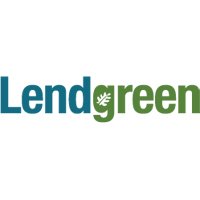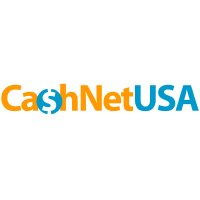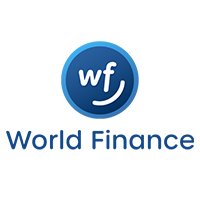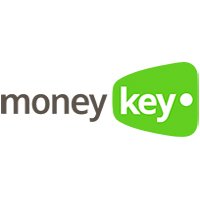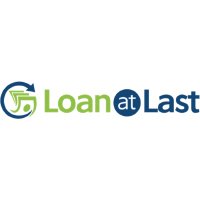Meaning of a Personal Secured Loan
Looking for cash but cannot meet the demands to acquire unsecured personal lending? Well, no worries, secured personal loans may become the best answer to financial hitches. By and large, they are tenable by collateral, minimizing perils for lenders, therefore, allowing them to cater to borrowers without records or those with the lousy rating.
But have you got the knowledge of the way they function? Perhaps, you are aware of their benefits, but what about the risks incurred in getting this money? Here we will clarify more concerning secured personal credits, so you know what you will be diving into while appealing for one.
A personal secured loan is tenable using collateral. The most known secured loans are equity lendings, house mortgages, and car ones. The rationale for placing collateral is to minimize the risks of the lender in case the person doesn’t honor the loan. The lender can offer low rates or approve lendings to individuals with poor credit. In case the person is unable to pay the money back, the lender sells the financial security to compensate for the lost value.
The primary standard collateral is real estate. Here, monetary firms that offer mortgages demands that the structure itself be utilized as collateral. If the mortgagor defaults the mortgage, the fiscal institution repossesses its structure and sells it to another bidder to compensate for the value that the mortgagor couldn’t pay. Other examples of collateral include bonds, state securities, precious metals, high-end vehicles, boats, etc.
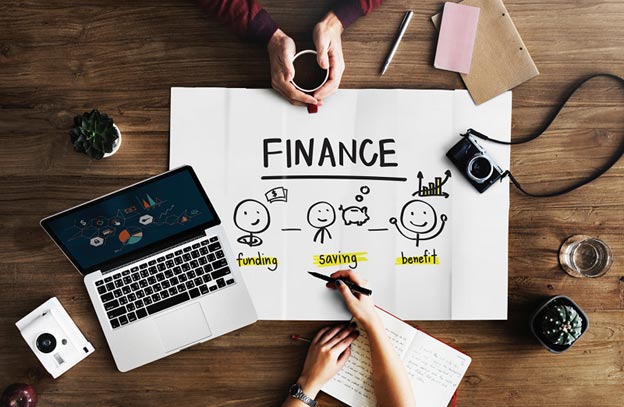
How to Acquire a Secured Personal Loan
Rationally Evaluate Your Financial Stability
Before sending an inquiry, keenly evaluate own economic condition so that not to get yourself into something regretful. Ask yourself whether money is indeed required or you can wait and save some to purchase what is needed. Think about the implications of your debt. If it hurts you more than helps you, don’t take it. It is not worth to place own home or any other asset as collateral if credit is needed for discretionary spending.
If the money is genuinely required, weigh your state cautiously to come up with the right figure of the budget to obtain. Just because financial institutions can propose you any sum you need, it is not prudent to take it all. One should apply for the exact amount that will solve the challenge one has faced. That will not only attract low secured personal loan rates but also streamlines the repaying process.
Request for Money at SACCO or Bank
Prior to going to the other moneylenders, request from a local bank whether it provides secured lendings, and what they accept as security. Also, you want to find out the value they can give if the bank approves a lending request. If the provider isn’t ideal for your demands, find out what their competitors and local unions grant.
However, if the bank provides secured personal loans, don’t settle for the first option; compare it with at least four or more lenders before choosing one. Shopping for the top commercial institution is the sure-fire option to ascertain you are making the right decision.
Select the Lender Before Sending an Application
Commonly, lenders perform a hard evaluation whenever an official request has been submitted. This often affects the rating negatively. To avoid this, don’t send applications to all the lenders you come across. Explore extensively, select an ideal establishment depending on individual needs and send your inquiry to that specific one.
That is not to mean that prequalifying for credit has no impact on the score. Multiple prequalification requests can be sent over, as well as one may get term and rate estimates from multiple lenders. Once you gauge the given policies, you can pick the best lender and then send a request.
Some Deliberations to Consider Before Accepting a Proposal
When a particular lender has sent an offer to you, don’t be quick to click on the Accept button in case of secured personal loans online. Before taking any, consider the below:
- Ensure that the value given is what you applied for. Don’t accept more or less than what you applied for. After all, if it is less, it will not be helpful, and if it is more, it may put a borrower in difficulties when repaying it.
- Investigate on hidden fees. Take your time and go through all policies before clicking on the Accept button or signing.
- The majority of secured loans have a repayment protection strategy. This plan protects a borrower from being compelled to make repayments if his or her employment is terminated or if he or she has become incapacitated. Though this plan is beneficial to borrowers, these insurance policies usually come with more cost. Evaluate these risks keenly before entering into an obligation.
- Read and acknowledge which penalties are imposed by the lender on missed repayments. If you are not sure whether you will make regular repayments as accorded with the lender, and the creditor imposes a punishing missed repayment policy, consider the next available proposal.
What Amount Can Be Acquired With a Personal Secured Loan?
The value of money you are eligible for with secured lending is directly proportional to the asset you can provide as collateral. Remember that financiers will only be willing to authorize only the amount they can recoup from selling the asset you have proposed as collateral. If you use commodities worth $30,000 as financial security, you can only get authorized for $30,000 or less.
Nevertheless, some financial establishments lend you more compared to the market worth of the collateral, while others don’t. Other aspects come into play when deciding how much a lender lends you such as the ability to pay the debt back, current pay, and history.
Types of Secured Personal Loans
- Mortgage loans: this type is typically backed by real estate. It is normally a property such as an apartment, home, or condo. The estate that you buy using the borrowed money is used as financial security. There are various types of mortgage loans.
- Home Equity Lending: this is also called Home Equity Line of Credit (HELOC). These individual lendings are evaluated based on the worth of one’s home. A professional appraiser calculates the value of the loan using the current appraised cost of the estate and deducts the total cost owed as the mortgage. Typically, the lender doesn’t provide the credit for the whole equity amount available, as it needs to allow a cushion in case the value of the home depreciates.
- Car loans (Direct or Indirect): if you need money to purchase a new automobile or a second-hand car, you can be given it and use the car as financial security. There are two main types of car lendings: direct and indirect. Indirect auto lending, the fiscal establishment gives you the amount you require directly, and then you go to buy the car from the dealer. In indirect car loan, the car dealer acts as the link between you and the lender.
- Car title loans: for this individual secured loan, you utilize your vehicle title as the financial security when applying for the money.
- Passbook loans: for this, you use Certificates of Deposit or your savings as security. But it is not common among lenders.
Average Secured Personal Loan Rates
Average percentage interest rates on personal secured loans fluctuate within 10%-28% per year. However, the actual rates normally depend on rating, the credit amount, the financier, and the credit length.
Fiscal organizations such as banks and credit SACCOs provide competitive secured personal loan interest rates. However, some of the lowest can be obtained on the web, especially from establishments that provide credits only to approved borrowers. If you are rated negatively on your profile, you can effortlessly get money online, since some online creditors lend it to borrowers with as low as below 620 credit rating.
The rating is one of the paramount factors used by monetary institutions to gauge your probability to pay the money back, and the annual percentage of the secured loan. Chiefly, if the score is high, the percentage rate of a lending would be lower. Those who have got a good credit rating of between 720-850, get rates within 10%-12%. Many of these people qualify even for lower rates. For people with average to poor ratings, their annual percentage rate is generally between 18%-36%. If your rating is below 620, and you don’t have any credit history, it can be challenging to obtain a conventional secured personal loan.
Nevertheless, this doesn’t imply that you should opt for payday loans in which their APRs can go past 100%. These become a constellation of forces that hold you in a cycle of never-ceasing debt. Rather, opt for a credit from a non-profit financial organization or a local credit union.
Hence, What is a Good Secured Personal Loan Interest Rate?
A fair interest rate is contingent on various things such as the intended use of money, the term, and the money balance. Unfortunately, you might be ineligible to the best secured personal loan interest rates offered by the lender but remember that average rates vary between 10%-28%.
So, when looking for individual lendings, apply to lots of lenders and see the interest rates suggested by each lender and choose the lowest one based on history and records.
If the rates offered by the lender are too high, and you cannot repay the principal value and the received money, choose other options, or wait until your credit score enhances and send a request.
Factors That Impact Personal Loan Interest Rate
Whether applying for a personal loan secured by real estate or secured by commodities, lenders will examine some points before making their final decision on whether to give their money or not. Among the main factors are credit rating and history, debt-to-income ratio, employment status. Among these factors, the chief is your rating. It determines whether you will be given money or not. In fact, most fiscal establishments have stringent policies concerning credit rating cutoffs. But when it comes to credit history, they may look at the time frame, the sum of negative comments in recent months, and the total inquiries you have had in the last few years. Many fiscal establishments usually look at the records of the previous two years.
Another aspect that fiscal establishments verify is employment status and history. Most banks and SACCOs request for pieces of evidence of your income, which could be income from your full-time job or self-employment. Other creditors might also ask for a minimum household or private income to be eligible to apply for the loan. These minimums are commonly capped between $20,000-$40000. If the financial firm you are considering has these requirements, you will want to give it documentation, such as W-2s, tax returns, or pay stubs with proves of income.
Debt-to-Income (DIT) ratio is another vital measure creditor utilize to appraise borrowers. That is the debt value, inclusive of your mortgages, and pretax income per month. Let’s say, if the pretax income per month is $4000 and your debt payments are $1200 monthly, your DIT ratio would be 30%. Generally, preference is given to a GIT of less than 45%, and DIT above 50% might be an unfavorable sign to fiscal establishments. It means you might strangle paying back the money.
Subsequently, the total value and length will impact the interest rate. Elongated terms and higher value will, with no doubt, mean higher APRs.
5 Top Tips to Get Low-Interest Rate on Secured Personal Loans
Every secured individual loan with an interest up to 12% should be deemed as the one with low interest.
Conceivably, one may think that all that is needed to obtain that 2.99% interest rate is good credit records, but the truth is that few individuals qualify for these ridiculously low-interest rates. The reason is that creditors only provide these pretty low interests to the only deserving applicants; individuals who borrow over a given amount of money, have a six-figure income and don’t have any debt. They are qualified by folks who don’t require credit. The average secured lending rate for borrowers with an incredible score is essentially around 9%. However, there are essential tips to regard to get the lowest interest rate.
Shop around
Lendings from credit unions and banks grant them at relatively low interest but do not consider this as the best deal. You can opt for secured personal loans online with low-interest rates. You can also refer to your peer-to-peer lenders where you don’t need to go to the branch to appeal for the credit. From attainable options, you can select that one meeting your qualifications and with the lowest interest rates.
Be aware of own credit score
Though lots of financial establishments require a credit grade of 680, to obtain secured loans at the lowest interests, one needs an incredible and spotless credit.
Pay down debts
Lenders don’t look at your credit rating only. They look at your debt-to-income ratio. So, make sure it is as low as possible so that they know you are capable of paying your debts and you will repay their money contentedly.
Only apply for the required amount
The interest rate payable is customarily calculated based on the value borrowed. If you apply only for the value you need, you will maintain the interest rates at fair levels.
Get enrolled for autopay and check for the perks
Lots of lenders provide 0.5 discount on the interest rate to those who register for the autopay, known as an auto-debit. It is an excellent way to decrease the interest rates to the minimum as well as facilitates the repayments of lending since you make the repayments automatically every month.
Secured Personal Loan With Bad Credit History
Because of low income and the ever-escalating expenses on living, you will not be surprised that numerous people in the US live payday to payday. As such, it is easy to find yourself on the wrong side with the lenders who blacklist you denying you access to any form of credit. This status has left many people devastated and unable to make their lives better because of their poor budgeting status.
Understanding Bad Credit and Credit Score
Every person in the United States has a credit profile, which is a report or history of his or her entire financial liabilities, repayments, and no-repayments. Whenever a borrower takes a individual loan, secured or unsecured, the details are reported on his/ her profile and if it has been repaid as agreed with the lender.
If you fail to pay the money back, the non-repayment is indicated on your profile negatively affecting your credit score. On the other hand, if you repay it, and that is recorded on your profile, your credit score is improved.
Being blacklisted or getting bad credit implies that you have not met the credit agreements and financial institutions have flagged you as a high-risk borrower. The implication of that is banks, and mainstream lenders will be reluctant to give you money – be it a mortgage, a small personal loan, or an auto credit.
Credit scores normally range between 300-850. A low credit score means you are more likely to default the payments. Any credit below 650 is a bad credit score.
People with a credit score below 650 a high-risk borrower and normally pay the highest interest rates. However, different lenders have a different meaning of “bad” and “good” credit score. For instance, some lenders will give borrowers with a credit score of even less than 580, while others will not think about it twice before saying no.
So, it is hard to define what is “bad” or “good”, but there is universally accepted credit scoreboard:
- 760-850 – very good;
- 700-759 – good;
- 660-699 – fair;
- 620-659 – poor;
- scores under 620 – very poor.
How to Get Secured Personal Loans with A Bad Credit History
Bad credit loan, also known as blacklisted one, is provided to individuals with bad credit history. One way to make sure your application for secured personal loans for bad credit history goes through if you are blacklisted is by offering collateral. This assures the lender that you would repay the money, and if you don’t, at least he has something to recover his money.
On the other hand, offering collateral allows you secured personal loan for bad credit history and enjoy low-interest rates. A collateral could be your home or a vehicle provided that you are a rightful owner of such property.
How to Deal with Risk in Bad Credit Loans
If you want a bad credit loan, many strangers will come knocking on your door to do business with you. They will tell you that they provide secured personal loan no credit check right away. For many people with a poor credit rating, that might sound incredible at the moment, but when you hear this, know that there is catch right away-skyrocketed annual percentage rates, debt roller over and short terms.
But there is no need to panic! If you want a bad credit loan, you can get it safely and build your credit score over time if you get the right lender. Here we have highlighted the steps you should follow to get socially responsible, the genuine lender who can approve the amount of money you want and assist you to enhance your credit score.
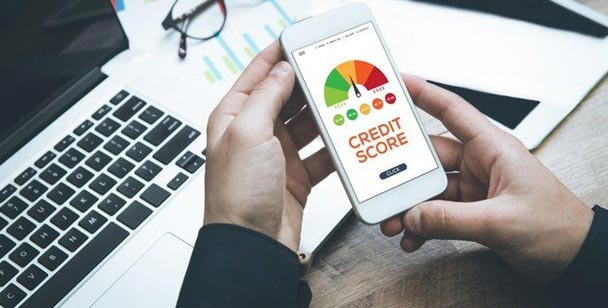
If you have been blacklisted and you are looking for a bad credit loan, look for a lender who:
- Gives personal secured personal installments instead of payday loans: payday loans can entangle you in debt cycle and ruin your finances. The risk you expose yourself in when you get a payday one is not worth it. Remember that an average payday borrower spends more than six months repaying for a payday lender – all this for a small amount of money that could only be repaid in just two weeks! Regardless of the perspective which you look at it, it all comes back to haunt your finances. Rather, opt for secured personal loan bad credit. They come with lower rates and realistic terms.
- Consider your capability to repay: this is an essential thing you and your lender should consider before taking money. While a fraudulent lender would want to lay traps for you by proposing to you short terms, sky-high interest rates (leading to continuous re-borrowing hence tying you up in cycle of borrowing and pushing forward the life of your loan at the expense of additional rates), a genuine lender will first look at your income to evaluate your ability to pay and depending on his evaluation determine whether to approve it or not.
- Carries out a quick credit check: you can be assured that a lender who promises you secured personal loan no credit check isn’t interested in knowing whether you are able to pay the money or not. If the lender you are considering doesn’t perform any credit evaluation, don’t wait. You should also worry about lenders who carry out hard credit evaluation. These hard credit checks alert the credit bodies can affect your credit score negatively.
- Provides flexible terms and repayment plans: if you need secured personal loan for bad credit, one of the sure-fire ways you are negotiating with a predatory money lender is when he offers you a short repayment plan. Payday lenders typically offer two or three weeks. Title lenders provide thirty-day terms. Normally, these quick and unrealistic terms make paying the money on time impossible. The rates are also very high despite the short repayment bracket. Rather, go for secured personal loans with bad credit that offer longer terms. Typically, longer terms translate to lower monthly repayments and an affordable money amount that a borrower can afford to pay.
- Report your payments to relevant establishments: when it comes to repayments, don’t forget that you are searching for bad credit loans since you are blacklisted. So, whenever you repay your money, you need to follow up to know whether that repayment has been reflected in your credit profile. Follow up with your lender and inquire from them whether they report in time the repayments to the credit bureau. If they report, you can utilize the credit to solve your short-term financial hitches and improve your credit score over time.
- Low-interest rates. If you are applying for a poor history loan, you are likely to be charged a lower interest rate compared to what you pay on credit card.
- Enhance your credit score. Getting bad credit loans and repaying them on time is the best way to increase your credit score and make yourself a desirable borrower in the future.
- Repayment schedule. Depending on your lender, you can get a long-term repayment period anywhere from one to four years.
- Multiple lender options. The number of lenders, willing to provide secured personal loans with bad credit is increasing. You have many options to choose from and get a desirable deal.
- Fees and penalties. Go through the fine print carefully. Do they charge an origination fee? What about penalties for late payments? You might also be charged some fee for paying using a cheque.
- Collateral might be needed. The lender might demand security in the form of an asset such as your house. If you default the payments, you could forget your home.
- Might not be licensed. This is the case with online lenders. Ensure that the lender you choose is licensed to offer such services before committing yourself.
Secured Vs. Unsecured Personal Loan
Is a personal loan secured or unsecured? This is a typical question among many people considering personal credit. Well, if this is the first time you are applying for personal lendings, we have everything you need to know about it so you can make informed decisions. They exist in two different flavors, and the type you select determines how much you can borrow and the interest amount.
What Is Secured Loan?
These are personal credits that need that a borrower to have a security asset also known as collateral that the financial institution can repossess in case the borrower is unable to repay the money. It is the safest for financial institutions because it has a built-in backstop. Secured loans are the most common. Examples of secured personal loans include home mortgage, those made by pawn shops, HELOC, auto lendings, etc.
Features
- They are not easy to qualify: foreclosure on a home or repossessing a car can take a significant amount of time, and the condition of the security asset is never assured, so financial institutions and other lenders would want to get more information about the credit history and income of the borrower before approving it. The assessments may take time.
- You can be approved to get more money: as long as you are willing to use high-value collateral, such as a car or a house, you can get large amounts of money for secured credits.
- Longer repayment period: as opposed to non-secured personal loans, repayment terms for secured personal loans always tend to be longer. For instance, most home mortgages are customarily repaid for thirty years, and an average auto loan takes five years.
Secured loans form the backbone of the automobile and real estate economy. Without car credits, very few people would afford cars. Similarly, if banks never provided home mortgages, few people would afford sky-high real estate prices.
The secured personal credit enables people to acquire high priced items that they could afford without secured loans. Nevertheless, using collateral that the lender can repossess in case the borrower is unable to repay the money makes these lendings pretty desirable for financial institutions. Collateral minimizes risk for the lender and reduces the interest rate charged on the whole amount of money.
Home mortgages are usually considered good debts. Financial institutions want to understand more about the borrower and the value of the home you are purchasing for two main reasons; they want to build confidence in you concerning the repayment within the scheduled period, and if you are unable, they can repossess the home and sell it to refinance the debt.
Auto loans normally attract higher interest rates compared to home mortgages since the collateral value, which in this case is your automobile, depreciates with time. In case you default the money repayment, the lender can take the car, but its value might be low to repay the loan. Therefore, higher interest rates take care of that.
What is an Unsecured Loan?
This is another kind of personal credit. This once doesn’t need collateral, so the lenders take a great risk. The lender just takes the word of the borrower and believes that the loan will not default. In case the borrower defaults it, the lender might sue him or try other means such as getting his salaries garnished, but otherwise, he cannot collect it. Examples of non-secured personal loans include credit cards, payday or student ones, etc. When it comes to credit cards, you can purchase goods as long as you will repay the card issuer when your bill is due. If you default the payments when you get the bill, the card insurer imposes high-interest rates, and this may become expensive for you over time. For student credits, defaulted payments reflect on consumers’ credit report.
Features of Unsecured Personal Loans
- High-interest rates: they normally attract higher interest rates due to their nature. Lenders take high risks, and they have to offset that by charging higher interest rates. For instance, the interest rate for a typical credit card ranges between 15-18%, while payday one can go as high as 400%.
- Low value: apart from the loans given to students, unsecured ones are much smaller compared to secured. Lenders minimize the amounts and maximize interest rates to offset the enormous risks that they take.
Non-secured credits don’t have collateral, which is a significant setback for lenders. The inability to repossess the asset in case of defaulted loan leaves the recovery of lenders money uncertain, and many predatory borrowers take advantage of that.
Though banks, online lenders and peer-to-peer lenders provide unsecured personal loans, credit cards beat them all. If fact, many people with debt issues fall into the debt cycle through unsecured borrowing. Loss of a job and illness also add to this debt problem, and it is even made worse if the person involved has accumulated a lot of debts on credit cards.
Though lenders cannot get back an asset to repay for a defaulted unsecured loan, they enact a lot of pressure on defaulters. Garnish your wages is of the ways they can compensate for defaulted loans. Even if they don’t collect their money back, they make it hard for you to borrow money from other lenders, and if you can, you get it at very high-interest rates.
Comparisons Between Secured and Unsecured Personal Loan
While both secured personal loans and unsecured personal ones are viable options to solve your financial problems, you can choose the better option ideal for your needs by comparing the two options. To make a better comparison consider the following points:
Maximum amounts
Typically secured personal loans don’t have high risk involved since the borrower provides collateral. As such, a borrower can get a high-value loan depending on the value of the collateral. Unsecured personal loans have low amount limits.
Interest rates
Since secured personal loans have low risk, this attracts low-interest rates. For non-secured ones, high risks attract high-interest rates. However, you can get variable and fixed rates for both unsecured and secured loans.
Fees
There is no big difference in fees between the two types of loans. But you should expect establishment fees for both kinds, though there is a possibility to get a lender who doesn’t charge any fee to establish the loan. Some of them also charge a monthly fee, so ensure that you compare the loans to get the best deal.
The terms
For both types of loans, expect terms of between 1-5 years if it is a fixed-rate credit and 1-7 years for variable-rate one.
The intended use
When you get approved for a personal unsecured loan, it is upon you to decide how to utilize the funds. However, for a secured type, there are some restrictions. For example, if you need a car credit, the lender may demand that you utilize the full amount of money to pay for the car.
The flexibility of settlement
This depends on whether the loan is variable or fixed. For fixed personal loans, you are likely to get penalties if you pay it earlier or late. Variable loans are more flexible and don’t attract these penalties.
The Difference in Secured and Unsecured Personal Loans
There are a variety of differences in secured and unsecured personal loans. We have listed the key differences in the comparison table below:
| Basis for comparison | Secured | Unsecured |
| Meaning | It is secured by collateral such as an asset. | It is not secured by any collateral. |
| Usage of lien | Yes | No |
| Interest rate | Lower | Higher |
| Status of borrower | Takes high risk since if he is unable to repay the money, the asset used as collateral is taken away. | He has low risk but is charged a higher interest. |
| Status of lender | Takes low risk since the lender can repossess the assets in case the lender defaults loan repayment | He has more risks since there is no collateral placed on the money which was received. |
| Given amount | Usually huge compared to unsecured personal loan | Generally lower than a secured personal loan. |
| Example | Car credit, house mortgage | Credit cards, student lendings. |
Conclusion
The circumstances you find yourself in determines what type of personal loan you are going to take. Things such as the amount of money you need and the urgency of that money will determine whether or not you will choose secured or unsecured type. However, remember that other factors, such as score, history, and income, will also determine whether you are eligible for the type you are considering. Are personal loans secured or unsecured? Now, you have an answer to this question. So, make your decisions perfectly and choose the right kind of loan that will solve your problem and not leave you in the debt cycle.
